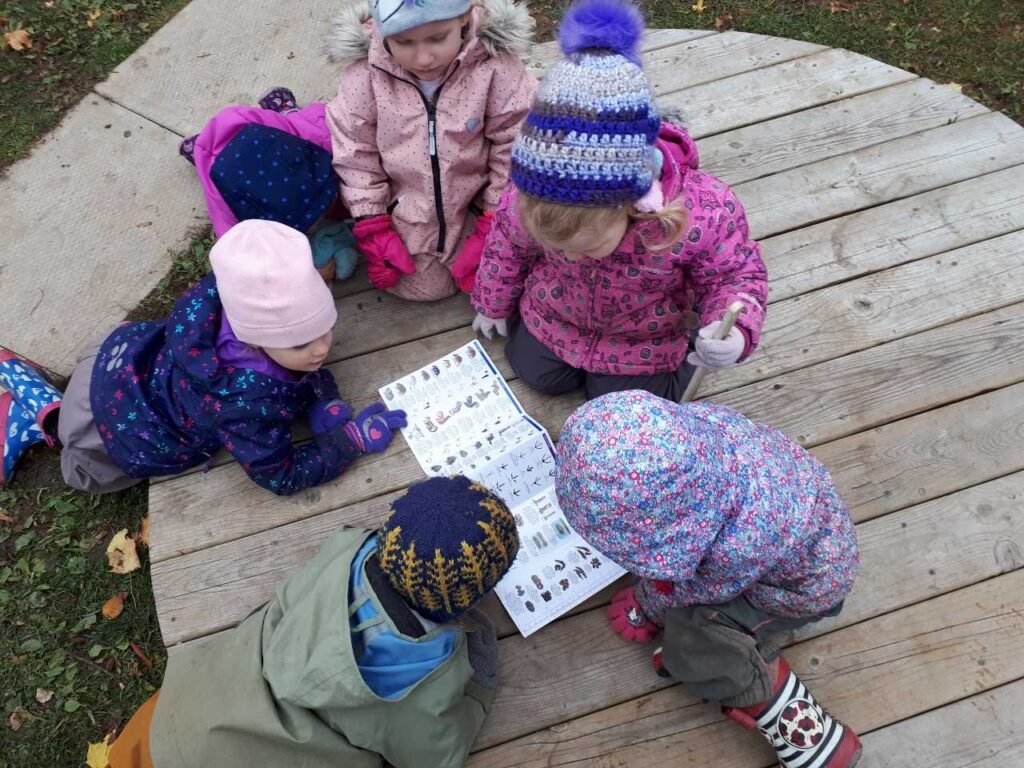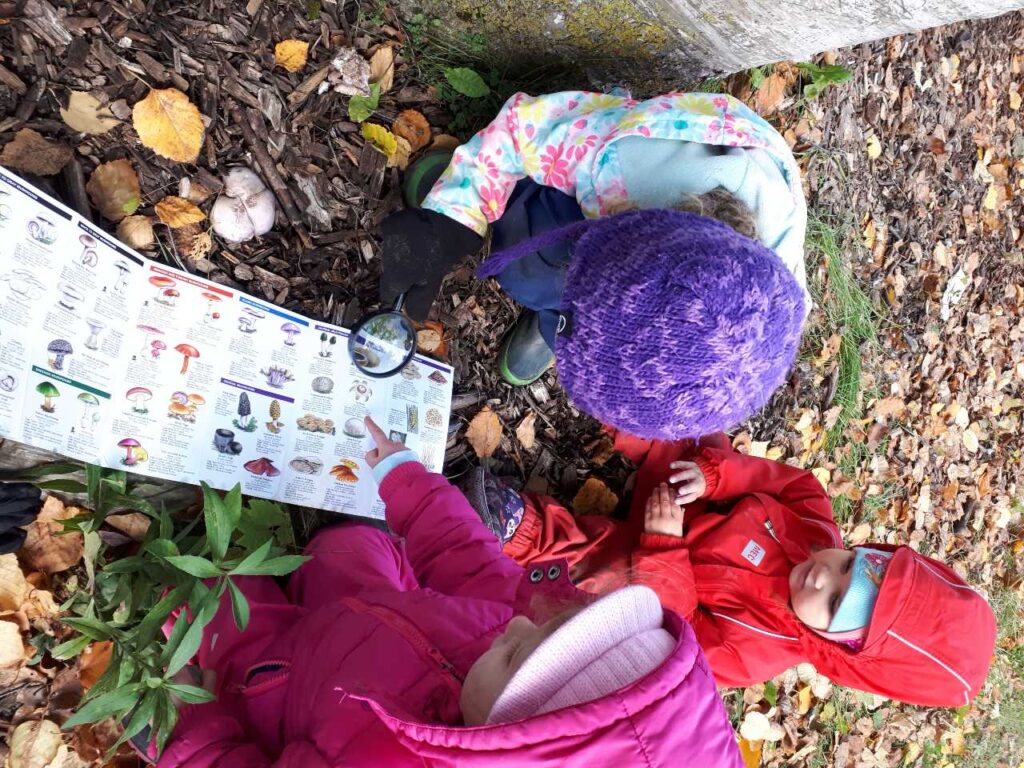Nature Pedagogy, Forest School, Free Range…the spectrum within the world of Nature Pedagogy is vast and encompasses many different, valuable perspectives. The way in which educators and organizations make decisions about which ethos most closely aligns with their values takes time, reflection, and lots of research. This way of being will look different to each educator and organization based on factors such as their own upbringing, education, experiences, location, biases regarding risk mitigation, organizations policies, and legislative barriers, the list goes on and on. I think it is also important to note that this is a conversation, not a destination. These ideas and values will continue to shift over time, through ongoing reflection, understanding of new research and best practices, and experiential learning.
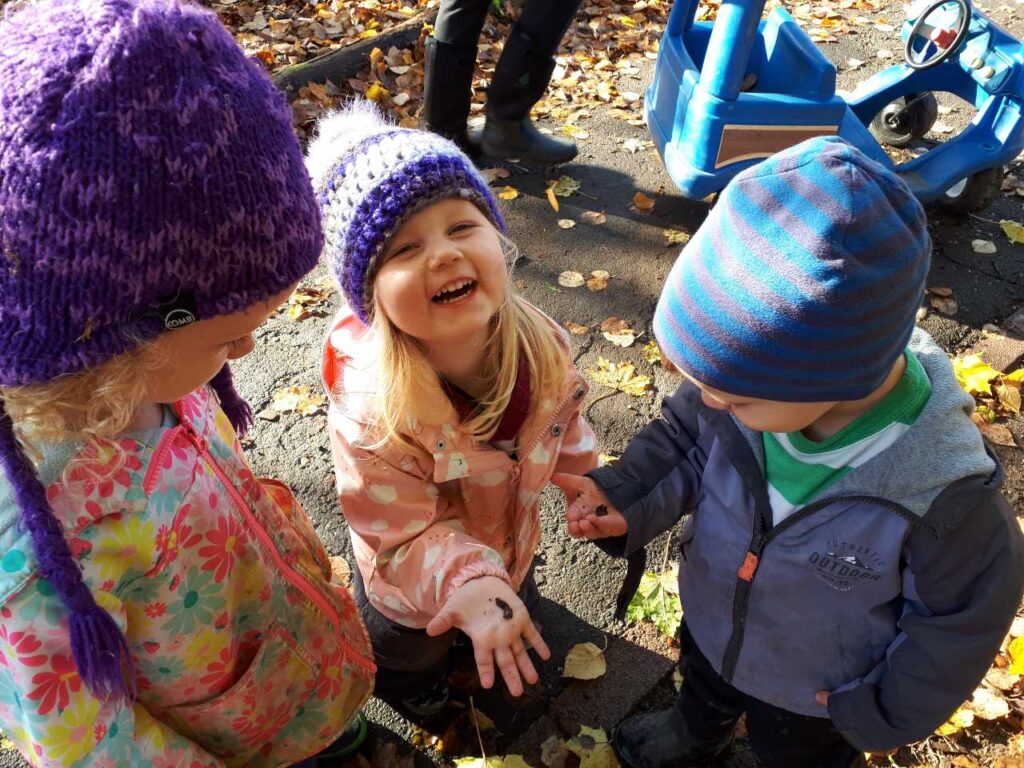
This is an important and necessary conversation to invite families, communities, and educators into as we co-construct what we believe to be best for children, educators, and families. Through reflection and my own experiences working at Discovery Forest and Nature School, professional development, and critical thinking with other educators; I have come to this conclusion at this time: Forest school is a way of being, not a location.
This may be confronting to some that think you MUST have a forest to have a forest school. I too have been confronted by this. I mean, FOREST is in the name afterall. Through ongoing dialogue over the past several weeks with our director, Karen Eilersen, we have been acknowledging the lack of attention and regulation around the outdoor space for children in licensed child care and public schools and this is what pushed me to think more critically about this topic over the past few weeks. I have also been thinking long and hard about this given the current context we are in with the recent push from the Ministry of Education to propose regulatory changes to the CCEYA. The conversation has come up for thought leaders, researchers, and practitioners to evaluate the Forest and Nature School Ethos and consider how it may influence or change our governing legislation. With this in mind, I felt compelled to share one perspective on this topic.
So Jessica, are you saying that any run of the mill program who spends a majority of their program inside, never connecting children with the wonders of the natural world can turn around and call themselves a Forest and Nature school…no way! And I would also argue that just bringing your classroom into a forest 5 days a week, doesn’t make you a Forest School either.
Let’s unpack this together…
The underpinning values that are connected to the Forest and Nature School Ethos include:
- “In FNS, children spend anywhere from a half day to a full day outdoors in local woodlands and green spaces, in various urban and near-urban parks, natural spaces adjacent to or on school grounds, or natural playgrounds and outdoor classrooms. Children attending FNS have the opportunity to learn in a natural environment on a regular basis. Some programs are offered to students one half-day per week, whereas other schools and early years centers have embraced this approach on a more full time basis, with students spending the majority of their days outdoors” (FNS Manual, pg. 12).
- “Two main features separate Forest and Nature Schools from other outdoor and environmental education programs. As described above, FNS can happen on a part time or full time basis; and it can also take place in a variety of contexts, environments, with varying age groups, and in different climates” (FNS Manual, pg. 12).
- “Despite variations, all Forest and Nature School programs adhere to the following: regular and repeated access to the same natural space, as well as emergent, experiential, inquiry-based, play-based, and place-based learning (MacEachren, 2013). The defining feature of this type of nature-based education program is that children are provided with opportunities to build an on-going relationship with the land, to a dedicated educator, to one another, and to themselves through this educational approach” (FNS Manual, pg. 12).
What does this Mean for Families and Educators?
Questions to Reflect Upon: This requires lots of reflection from families and educators as you decide which organization’s values most closely align with yours. At this point, there is no standard accreditation model in Canada which makes it challenging to understand what you might be signing up for. There are strides being made to create a more comprehensive model (Similar to that in Scotland or Denmark) but this is a slow process that requires input from many different stakeholders to ensure we are making decisions that increase quality while not implementing more barriers to operate these values into programs.
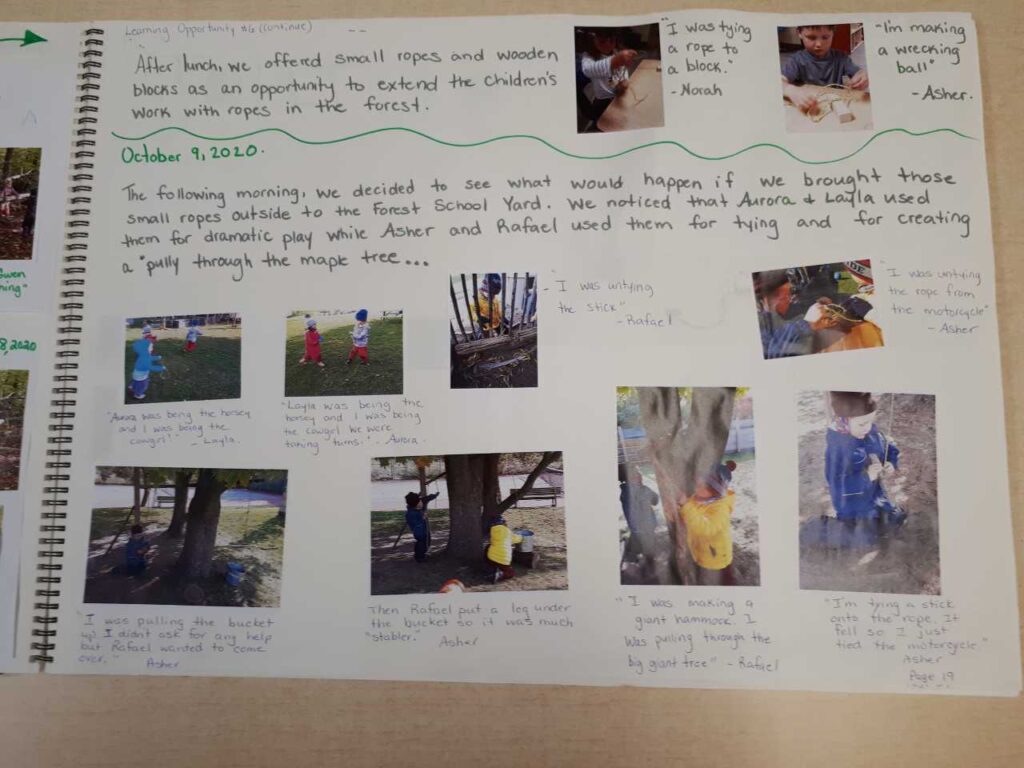
Some considerations I would be curious about if wanting to understand where an organization lies on the Spectrum of Forest and Nature School Ethos is:
- Pedagogical values: this can be understood through reading and reflecting on classroom documentation. Where do programs spend their time? What are they spending their time thinking about with the children? Who (including non-human, animals, land etc.) is involved in their program? How is the land and place based curriculum evident in their program? When (time, duration, regular and repeated) do the children go outside?
- Policies and procedures: In what way is the organization setting up the structure so that they can implement the ethos of Forest and Nature School while still being mindful of issues such as Risk Mitigation, safety, and well-being of children.
- In what ways do they support reciprocity with the land? Do they create systems and structures that allow the organization to give back to the land as well? (ie. Gardening, Tree Planting, Connection to Local Indigenous Communities etc.)
- Evaluation of Space, Materials, and Resources used (including indoor and outdoor space). How are the values reflected in the environment and materials used? (Do you notice natural materials or plastic, is the indoor environment reflective of the values of a Nature Based program etc.)
This is an important and timely conversation that needs to be taken up by multiple members of our community, at all stakeholder levels. Even at the most local level, the development of environmental awareness has global implications and is imperative to implement into early years programs. We truly have the ability to create more liveable futures for our children and can do so through the work of Early Childhood Education.
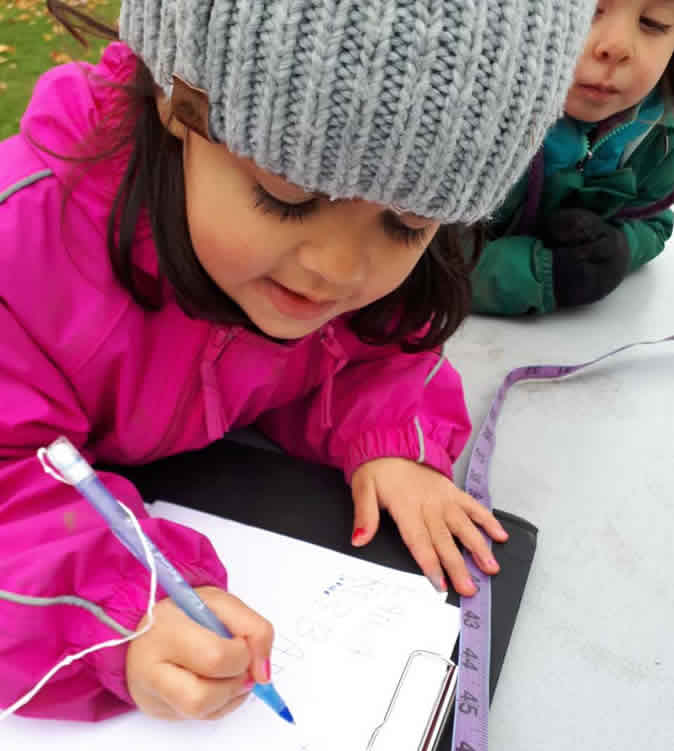
As noted in the work outlined in Natural Curiosities 2nd Edition: A Resource for Educators. The Importance of Indigenous Perspectives in Children’s Environmental Inquiry. This work contributes to the overall sustainability and long term health of our planet as it:
- It recognizes that we all share the responsibility to maintain a health planet (of which we are a part).
- It empowers learners to take informed decisions and responsible actions for environmental integrity, economic viability and a just society for present and future generations (UNESCO, 2017, p.7).
- It develops in students “the knowledge, attitudes and capacity to respond to the challenge of sustainability throughout their professional and personal lives” (UNESCO, 2017, p.50).
- It challenges the notion that nature is an unlimited body of resources available for human consumption without consequence
- It rebalances the values of traditional ways of living, learning and knowing, stressing the importance of listening to Indigenous voices, from around the world.
- It honours the idea that nature has rights (Global Alliance for the Rights of Nature, 2017).
“Children need to develop a relationship with nature before they can be expected to heal its wounds…without that deep , abiding sense of comfort in and love for the natural world, no amount of chastising about turning off the lights or biking to school is going to make a bit of difference” -David Sobel, Childhood and Nature: Design Principles for Educators (2008).
Jessica Holder, RECE, BSc, Forest School Practitioner

